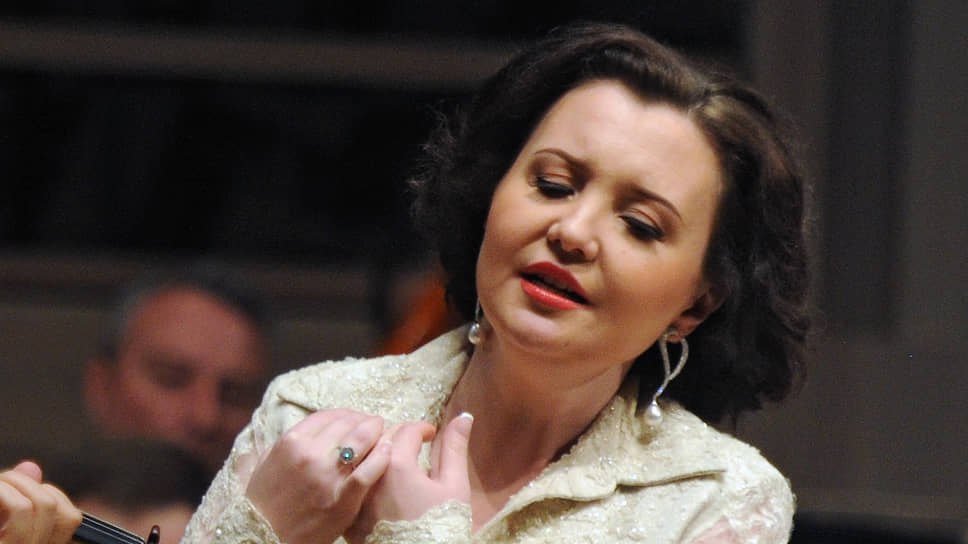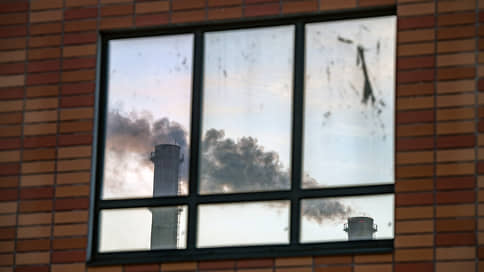« Norm » at the Mariinsky Theater: how the opera Bellini was set

The premiere of the opera “Norm” Bellini on the new stage of the Mariinsky Theater in the production of two Sergeyev Novikov, director and artist, opened the international festival “Stars of White Nights”. Under the control of Valery Gergiev, the Party of Norma was first fulfilled by Albina Shagimuratova. Tells Vladimir Dudin.
Surprisingly, the most famous opera Bellini has not been staged in the Mariinsky Theater since 1861. The answer to the question why the “norm” was not risked to put here a century and a half, it was possible to get a couple of premieres, which, with all the incredible effort, could still not avoid the masses of sharp corners and underwater stones of the style lurking in the score. Vincenzo Bellini created a masterpiece that checks the performers for professional and artistic strength. The best soprano of the world is fighting for the party, continuing to look for the key to interpretation, but many of them do not dare to take on it. So, in this list there is no, say, neither the Genes of Dimitrov, nor Rene Fleming, and many more – Maria Callas, who actually revived the forgotten masterpiece in the middle of the last century, put such a high bar in this opera.
The nature of the title heroine is full of contradictions – at the very beginning of the opera, she prays for the world in the famous “Casta Diva”, in the end calls for the war. And therefore, the sound of the role should change from the delicate lyrical colorator to the almost animal, bubbling from the rage of dramoprano: it is precisely such, knocked out of the rut, devoid of peace and greatness, the Gallic priestess becomes the norm, learning about the betrayal of the Roman Pollion – her beloved, but also the enemy of her people. Impressed by the “norm” of Verdi will write his Violetta in “Travate”, and Wagner will be Brungild, which will be closed in the Ring of Fire in Valkyrie; Mussorgsky will act almost the same in Khovanschina with Martha, having prepared self -immolation with her lover Andrei in the name of love.
Director Sergei Novikov was invited to set the “norm”, who made his debut in Mariinsky last season with his overpowered and sent “Ariadn on the Naksos” Strauss. Loven to say that in his works he tries to respect the masterpieces, “follow the author’s text”, he every time he diligently screws into these texts something so much, some details of such a property that this “respect” does not cause anything but awkwardness. The “norm” was no exception. So, at the very beginning, the satisfied Druid warrior drags two goose wings (which, let us put, are really mentioned in the libretto as part of the Roman heraldry) and throws it into a fire under a boiler with a ritual brew. After some time, Flavius, a friend Pollion, pulls them out-why, why? – And awkwardly puts them, charred, but miraculously surviving, to the tribune. In turn, this tribune, with which the Supreme Priest Oroovezo acts (and subsequently, for passionate confessions, Pollion or Adaldjiz run out in turn), reminds the rostrum of the Brezhnev party, to rejection. Clotilda’s prostitute forces the director forces to dance with children norms after the duet of reconciliation of the main character with Adaldjiz – to dance how they dance at discos in the Soviet cinemalassic “relatives” and “love and pigeons”.
The artist Sergei Novikov composed a powerful, gloomy space of a sample by a kind of dawn of civilization – with a cozy Berlog of priestess in a giant rock, with a magnificent set of animal skins on a stone crib, with romantic video forces of the vast, poetic, but conquered Gaul. In the final, this naturalism, however, gave way to an awesome attempt to symbolism, when a giant hoop of unforgettable lava with protruding branches of Omel appeared above the ground. The desire of the creators of the play for a respectable historical spectacle is clear, but why then in the styles of adaldjiza and the norms that walked in these outfits among the unceased blocks, there were signs of either Shakespearean or Victorian England? Probably, all this in order to entertain the viewer-as well as cinema, work out episodes of the described dreams and memories: those still “authentic” achievements for the first century BC. However, all these creations of the director and artist at the end sweeps away the eruption of the awakened volcano: of course, a spectacular punishment for a religiously isolated, which has lost the norm of peace, although it is still not entirely clear what the ancient gallium has to do with it.
For Valery Gergiev, the first performance “Norms” was a test – obviously, traditionally the insufficient number of rehearsals affected, without which the music of this opera, requiring jewelry articulation work, can turn into a continuous minefield from non -nichonous ensembles of soloists, choir and orchestra. In compliance with the balance between the Belcanton grace and the militaristic severity of the orchestra, it was difficult. The focused dramatic meaningfulness was not felt, without which the “norm” turns into a minor and lethargy. But at those moments when the maestro suddenly caught a wave, piercing symphonic revelations arose.
Nobody easily from singers in these circumstances easily, but Igor Morozov took the lyrical Pollion with confidence and stability, while the more dramatic Yaramir Nizamutdinov, in addition to vocal endurance, was still a stage trump card in the form of external stature, which was quite appropriate for the Roman proxulu. Adaljiza Ekaterina Lukash managed to show how bright shadow could be Seconda Donna, but Irina Shishkova in this party was too worried about the general neat tissue and the upper notes, although the beauty of the timbre and cinema of the image had in her favor. Of the two, Miroslav Molchanov struck his bass with the bitterness of his bass, while Maherram Huseynov – Belcanton silk and the nobleness of the voice. Maria Bayankina made a maximum possible to not lose anything in the fateful role of the norm, but the top was still not given without a fight. The main musical triumph and the miracle of this “norm” was the performance of Albina Shagimuratova, who demonstrated the ethical height, endurance, and instrumental evenness of sound, and, most importantly, the magical connection of the word and music, for which Bellini worshiped both Verdi and Wagner.







